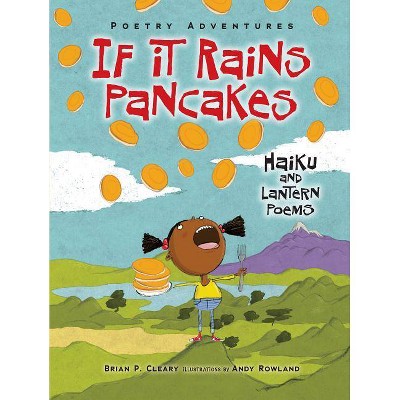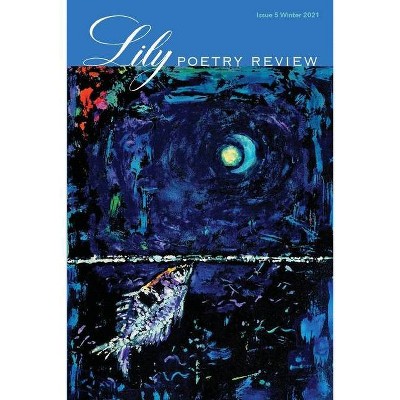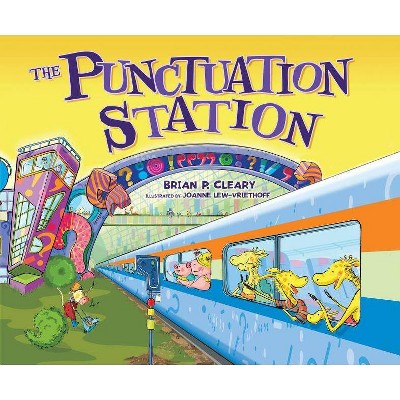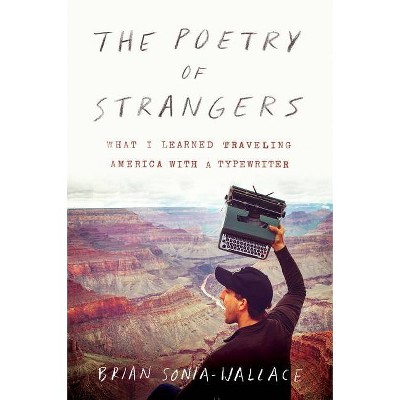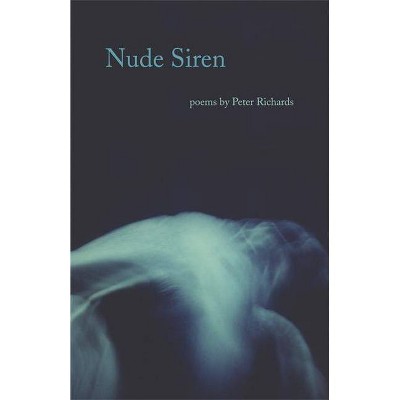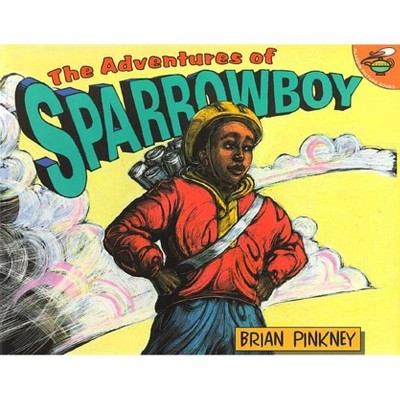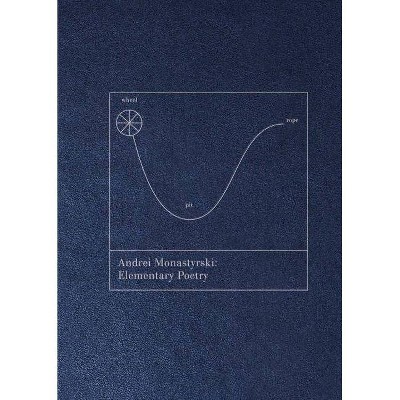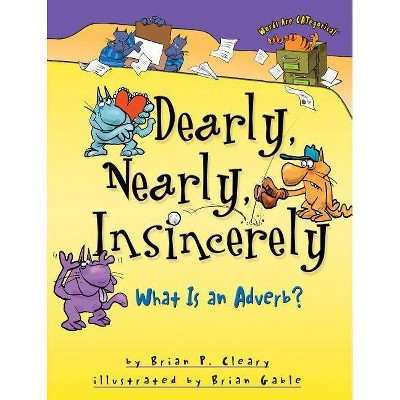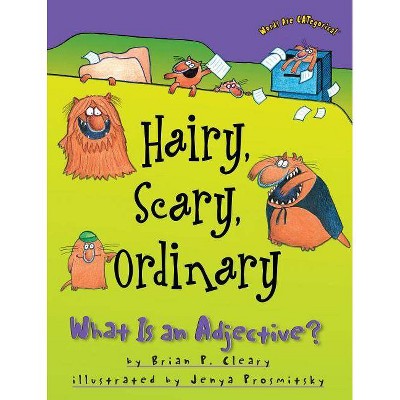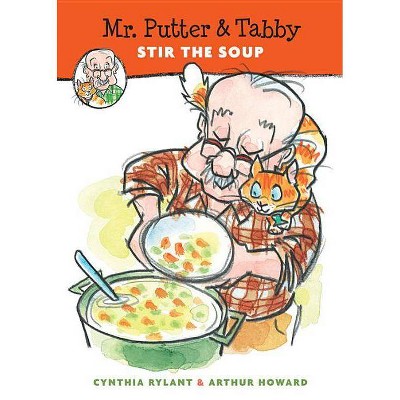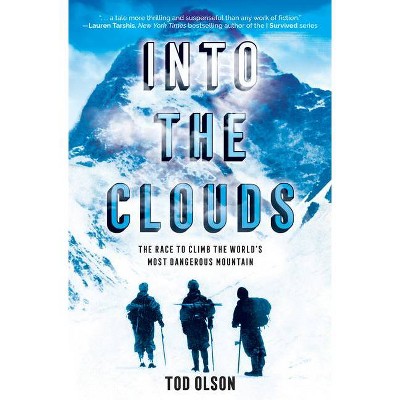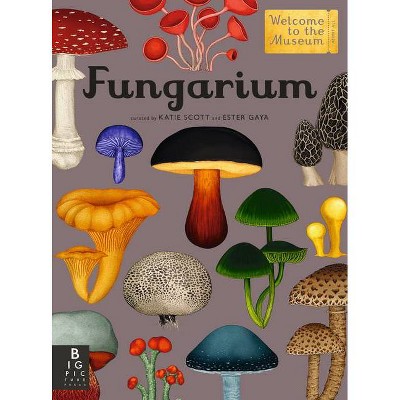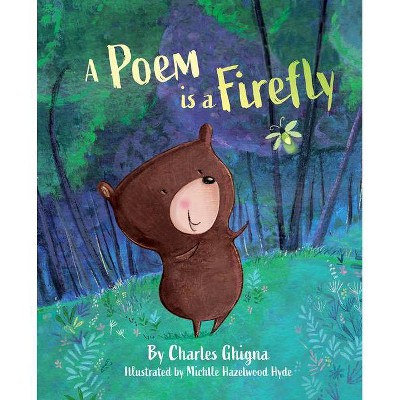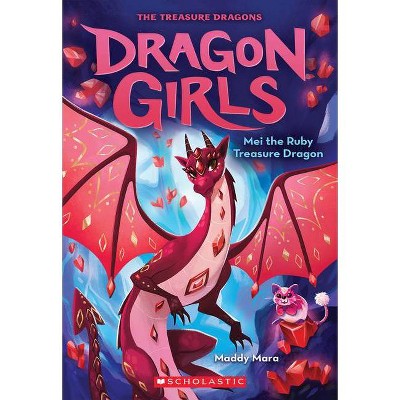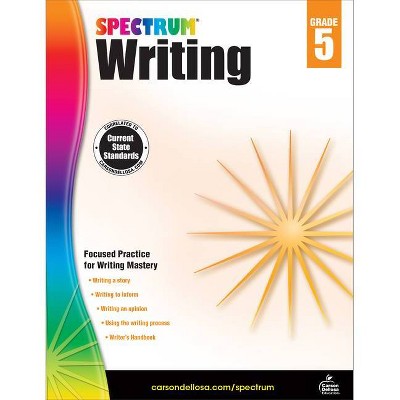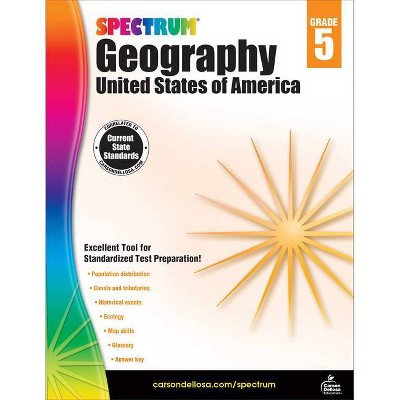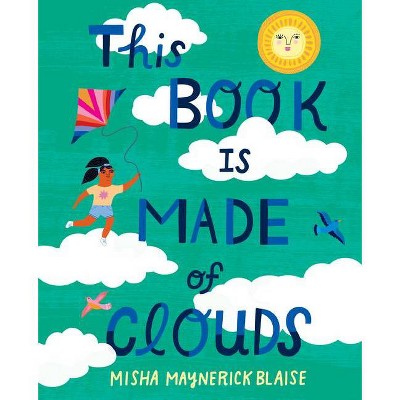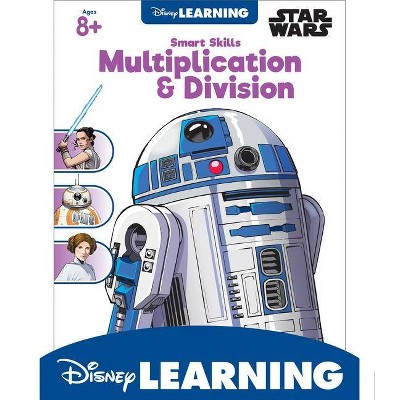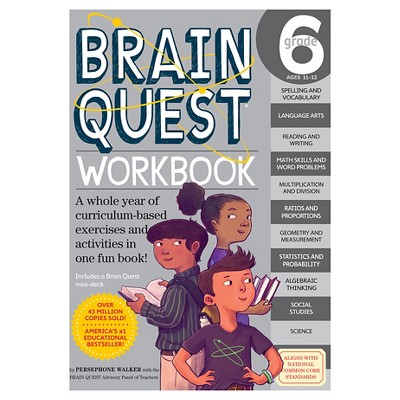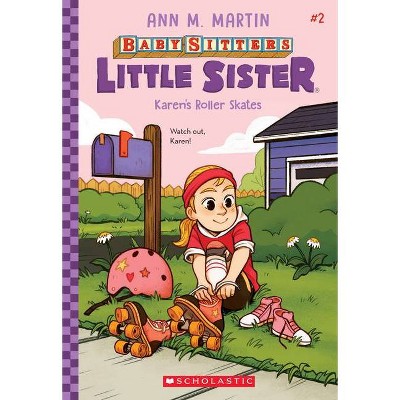Bow-Tie Pasta - (Poetry Adventures) by Brian P Cleary (Paperback)
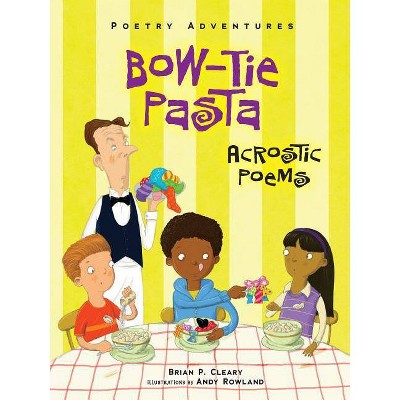
Similar Products
Products of same category from the store
AllProduct info
<p/><br></br><p><b> About the Book </b></p></br></br>Acrostic? What kind of stick is that? Actually, it's a poem! Award-winning author Brian P. Cleary explains how acrostics are created and shows how even the wackiest words be turned into a poem.<p/><br></br><p><b> Book Synopsis </b></p></br></br><p>Acrostic? What kind of stick is that? Actually, it's a poem! Acrostic poems are created from a word or phrase written vertically down the page. Each letter becomes part of a line in the poem, revealing a thought or a clue about the poem's topic. Award-winning author Brian P. Cleary shows how even the wackiest words can make an acrostic poem. <br /> <br /> <em>Bow-Tie Pasta</em> is packed with acrostics to make you snicker and snort. And when you've finished reading, you can try your hand at writing your own poems!</p><p/><br></br><p><b> Review Quotes </b></p></br></br><br><p>After a brief description of acrostic poetry, Cleary jumps right into the more than two dozen selections, which, apart from their structure, don't share a common theme. The poems range from sentimental ('Mom, you're there with / Outstretched arms, / To nurture, love, and guide me') to jokey (what did the catfish and elephant couple give birth to after their wedding? 'Swimming trunks') but they all offer approachable inspiration for young aspiring poets. The short poems, only a few of which follow a rhyme scheme or meter, are well matched by the colorful cartoon pictures, which illustrate each acrostic and make for breezy browsing. While some of the assertions are a bit strange--since when is India in Southeast Asia?--<strong>the overall light tone and friendly approach to an easy-to-replicate form of poetry make this a good addition to school poetry collections, for both studying types of poems and as a kick-start to creative writing efforts.</strong> A list of further reading, including both print and online resources, closes out the volume.--<em>Booklist</em></p>-- "Journal" (10/15/2015 12:00:00 AM)<br><br><p>Cleary's latest poetry title provides an excellent entry point for budding poets. The collection kicks off with 'What Is an Acrostic?, ' a succinct overview of the poetic form accompanied by tips on how to get started writing. The subjects of Cleary's poems run the gamut from the titular bow-tie pasta to Kansas to pirates to lacrosse. Though the topics are straightforward, the selections themselves are often playfully sophisticated and witty. In 'Jokes, ' Joe, an elephant, marries Olivia, a catfish, who soon thereafter gives birth to swimming trunks. Both the text and Rowland's illustrations are light and silly, perfect for young poets. Back matter lists books and websites where aspiring bards can find inspiration, writing tips, and further practice. VERDICT: <strong>An extremely useful tool for teachers or librarians looking to breathe life into a poetry unit.</strong>--<em>School Library Journal</em></p>-- "Journal" (11/1/2015 12:00:00 AM)<br><br><p>Humorous acrostic poems are the focus of this addition to the Poetry Adventures series, following books about haiku, concrete poems, and limericks. More than two dozen poems celebrate everything from locations (Kansas, India) to colors (yellow, purple) and animals (triceratops, spider), suggesting that poetic inspiration can come from just about anywhere. 'Tiny beads of water suggest your steamy essence, ' reads an offbeat tribute to the hotdog, while the lines of a more serious-minded poem spell out the word mother: 'Mom, you're there with/ Outstretched arms, / To nurture, love, and guide me.' <strong>Full of silly moments, Rowland's cartoons are as approachable as Cleary's rhymes, making this a fine, funny lead-in to readers' own acrostic explorations.</strong>--<em>Publishers Weekly</em></p>-- "Journal" (9/21/2015 12:00:00 AM)<br><br><p>Master punster Cleary and illustrator Rowland again join forces (<em>Something Sure Smells Around Here</em>, 2015, etc.) to explore a light poetic form. Even before the fourth volume in the Poetry Adventures series gets going, Rowland's cheeky illustration of an island castaway finding a bottle with jumbled letters spelling 'acrostics' in it effectively conveys the message-in-a-bottle thematic sense of this poetic form. Much like a whodunit that starts with a body in the library, the acrostic poem makes no bones about revealing its subject. As Cleary explains, they are arranged so that 'the first letter of each line forms a word or words when read vertically, ' and then 'words or phrases built off that first letter help describe that subject.' The collection's more successful poems shy away from listing descriptor after descriptor, as in 'Yellow' or 'Snack Time.' 'Teachers' creates an inspiring portrait: 'They are the superheroes who show up / Each and every day, not just when some special signal or / Alarm is activated.... / ... / Saving more lives than all those cape-wearing showoffs combined.' 'Poem' captures the challenge of the form with a joke: 'Poppies are red. / Orchids are blue. / Ever rhyme stuff? / Man, it's really hard.' Throughout, <strong>Rowland's brightly detailed illustrations neatly capture Cleary's playful tone and whatever pun's to be had. Entertaining and spirited</strong>, though nothing subtle about this <strong>wily collection of puzzler poems.</strong>--<em>Kirkus Reviews</em></p>-- "Journal" (9/15/2015 12:00:00 AM)<br>
Price History
Price Archive shows prices from various stores, lets you see history and find the cheapest. There is no actual sale on the website. For all support, inquiry and suggestion messages communication@pricearchive.us
